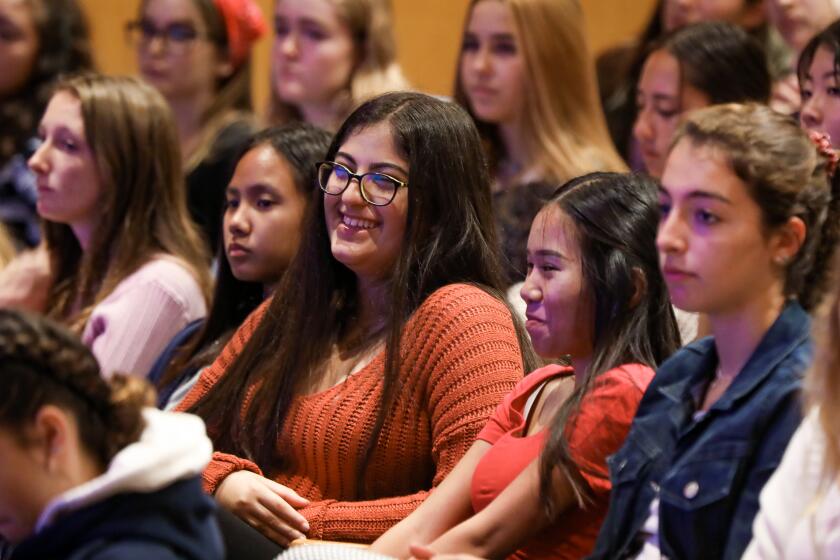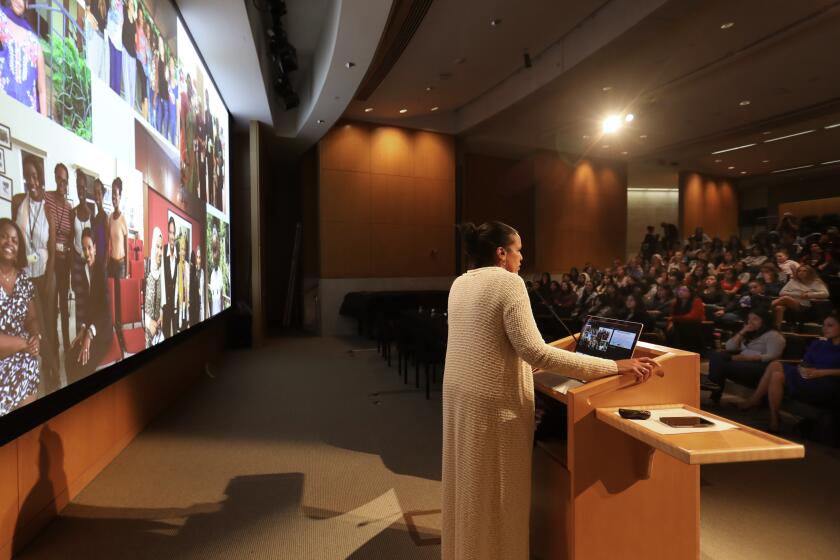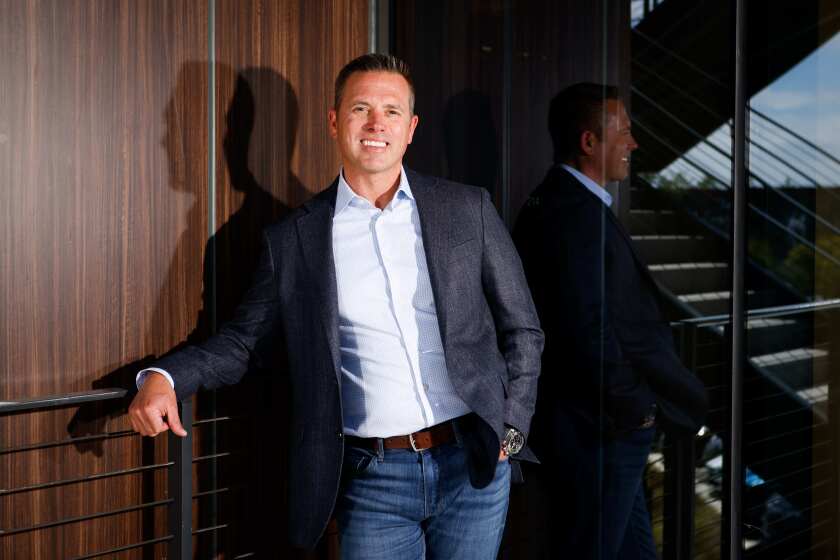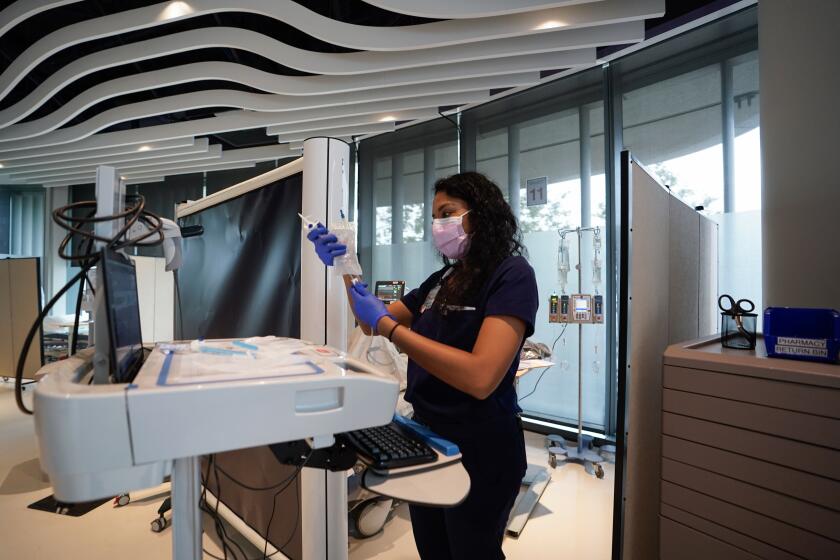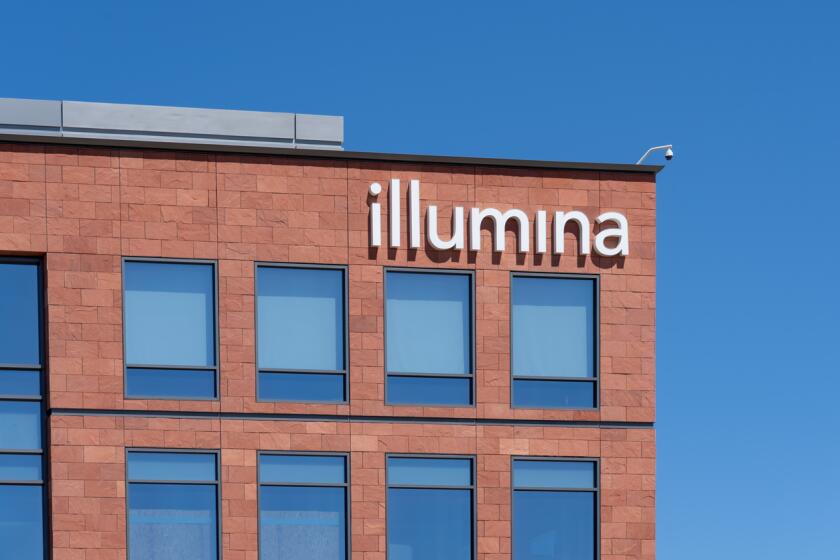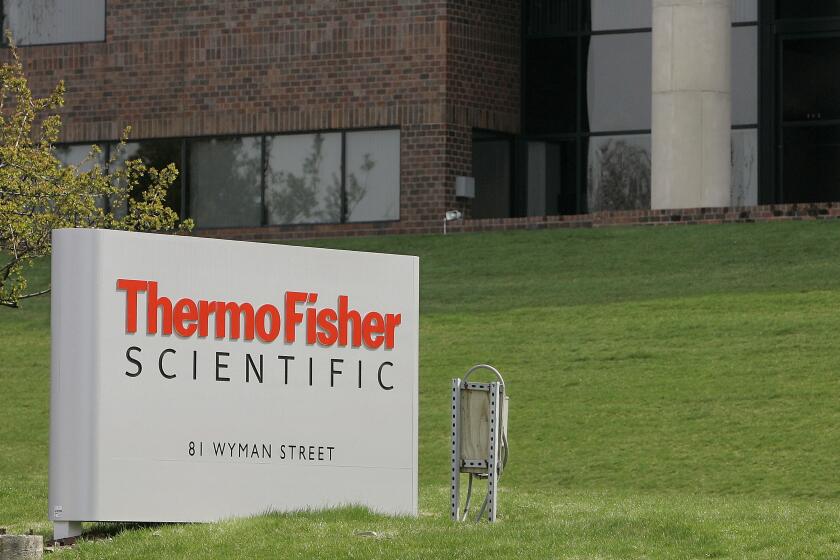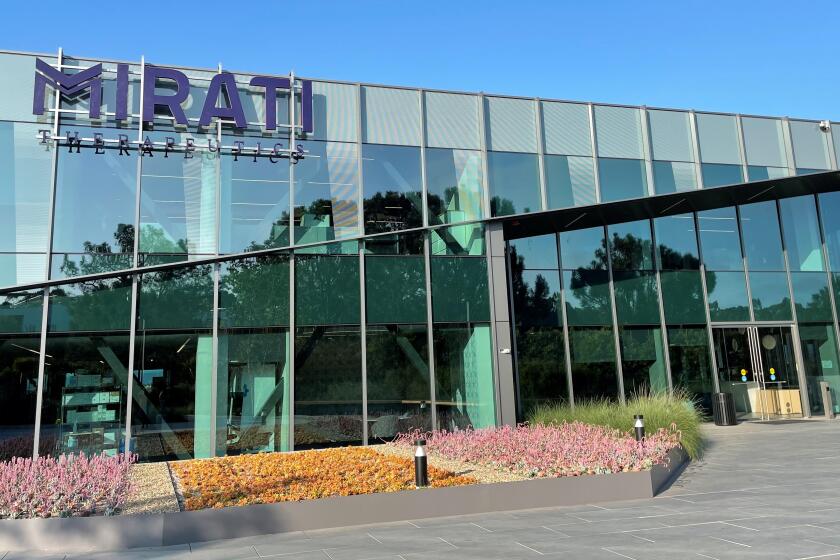UCSD sues USC, noted Alzheimer’s researcher
Lawsuit says Dr. Paul Aisen and others conspired to move Alzheimer’s program to USC
UC San Diego on Thursday sued the University of Southern California and a nationally recognized Alzheimer's disease researcher, saying they illegally conspired to take over a major Alzheimer's study it is running.
The lawsuit, filed in San Diego Superior Court through the UC Regents, also names as defendants eight colleagues of the scientist, Dr. Paul Aisen. He left UC San Diego to head a new Alzheimer's institute founded by USC in San Diego, bringing the eight with him.
Related
While universities commonly recruit or poach faculty from each other, lawsuits arising from the recruitment are much rarer. This lawsuit says USC and the other defendants went beyond recruitment to commit a variety of illegal acts, including interference with contract, breach of duty of loyalty by employee, commission of computer crimes and civil conspiracy.
UC San Diego said it has been deprived of access to data for the Alzheimer's project because of the actions of Aisen and the other defendants.
The university is seeking an unspecified amount of money, to be determined through a jury trial. These include compensatory damages, attorney fees, repayment of profits and other compensation the court deems proper. UC San Diego provided a copy of the lawsuit to The San Diego Union-Tribune.
USC says it simply recruited a prestigious scientist, an activity which academic institutions perform routinely. Aisen didn't comment on Thursday's developments.
Aisen is best known for leading the Alzheimer's Disease Cooperative Study, or ADCS, a nationwide effort to speed up getting Alzheimer's treatments to patients. Funded by the National Institute on Aging, the study has been based at UC San Diego since its creation in 1991. Aisen became its head in 2007.
In 2013, the NIA announced a 5-year grant of up to $55 million for ADCS; its total funding from government and private sources is $100 million, the lawsuit stated.
Among its projects, the study is leading a massive clinical trial of an Alzheimer's drug involving about 1,000 participants.
The stakes are immense: Alzheimer's is the only top 10 cause of death in the United States that can't be prevented or effectively treated. In 2015, the direct costs of caring for Alzheimer's patients will total about $226 billion, according to the Alzheimer's Association.
Aisen departed from his ADCS role when he resigned from UC San Diego on Sunday, June 21, and the university declined to let him keep the grant. UC San Diego has named two other Alzheimer’s researchers to lead the ADCS while it looks for a permanent replacement for Aisen.
On June 25, USC, based in Los Angeles, announced it had hired Aisen to lead its new Alzheimer's research center in San Diego.
The eight other named defendants are Stefania Bruschi, Gustavo Jimenez-Maggiora, Phuoc Hong, Jeremy Pizzola, Hong Mei Qiu, Jiasing So, Mayya Nessiro, and Deborah Tobias.
The lawsuit also lists up to 25 unnamed "Does," who may be named later.
Making the move
Beginning in April or perhaps earlier, Aisen and colleagues conspired to move the study from UC San Diego to USC, according to the lawsuit. They made false or misleading statements to the Alzheimer's study employees at UC San Diego to get them to move to the new USC institute. They also didn't get consent from the National Institute on Aging.
USC encouraged Aisen by granting him generous terms, including a $500,000 annual salary guaranteed through 2020, the lawsuit says.
"The terms offered by USC were expressly set forth with the expectation that Aisen’s salary would be paid by 'extramural research funding you [i.e., Aisen] obtain,"' the lawsuit states. "Thus, thanks to Defendant USC, Defendant Aisen has a strong personal financial incentive to interfere with The Regents’ contractual relationships with UCSD’s research sponsors."
Aisen and the other individual defendants also took unauthorized control of the ADCS data, the university said in the lawsuit. They placed the data on an Amazon account not under the control of UC San Diego. The defendants have not responded to the university's request to hand over all data, passwords and access credentials, the lawsuit said. A request to USC for assistance didn't produce results, according to the suit.
"UCSD has attempted to gain access to the Account No. ... through Amazon; however, Amazon advised that, because the account is not held in the name of UCSD, that Amazon regarded the account as 'owned' by someone else, and Amazon’s internal policies prevented Amazon from identifying the 'account holder,' permitting UCSD to reset the password to the account, or granting UCSD administrative control over the account," the lawsuit stated.
"Amazon suggested that UCSD either obtain the password from the 'account holder,' or get a court order. UCSD has continued to work with Amazon in an attempt to gain full access and control over the account."
UC San Diego continues to hold the ADCS grant, stated an email sent Thursday by Robin A. Barr, director of the division of extramural activities at the National Institute on Aging, part of the NIH.
USC said in a statement it recruited Aisen under commonly accepted practices that universities often employ to get desirable faculty.
"We are surprised and disappointed that the University of California, San Diego, elected to sue its departing faculty member and his team, as well as USC, rather than manage this transition collaboratively, as is the well-accepted custom and practice in academia," USC said in the statement.
Pradeep Khosla, UC San Diego's chancellor, said the lawsuit's goal is to ensure that the university's efforts in Alzheimer's isn't impeded.
"We are proud of our work, grateful for our partners, and disappointed that one faculty member has chosen to separate in such a way that puts the ADCS's work in jeopardy," Khosla said in a statement. "We are committed to the ADCS and to Alzheimer's research and by this lawsuit hope to ensure that this important work continues at UC San Diego for as long as it takes to find therapies and cures for this terrible disease."
Rivalry
The lawsuit highlights the rivalry and ill-will between USC and a large portion of the San Diego academic community. USC made a bid to partner with or acquire The Scripps Research Institute last year. Intense faculty opposition helped scuttle that bid. UC San Diego played a role, with Khosla suggesting that the university would make a better partner than USC.
It's not just an academic rivalry and it's not just in San Diego. USC is famous for its prowess in fund-raising. It has raised more than $4 billion in its $6 billion capital campaign. Meanwhile, UCSD is preparing to raise about $2 billion in its own capital campaign.
USC has also raised eyebrows with high-octane faculty recruitment coups in Los Angeles and aggressive national fund-raising. In April, USC President C. L. Max Nikias traveled to Texas for a three-day fundraising trip, part of a "corporate-like" approach to fundraising a Los Angeles Times article said some found offputting.
And in 2013, the university attracted two top neuroscientists, Arthur Toga and Paul Thompson, from UCLA. Moreover, nearly all the staff of their laboratory moved with them.
Aisen mentioned in a recent interview he was looking forward to working with Toga, whose neuroimaging skills are of great use in Alzheimer's research.
Get U-T Business in your inbox on Mondays
Get ready for your week with the week’s top business stories from San Diego and California, in your inbox Monday mornings.
You may occasionally receive promotional content from the San Diego Union-Tribune.


